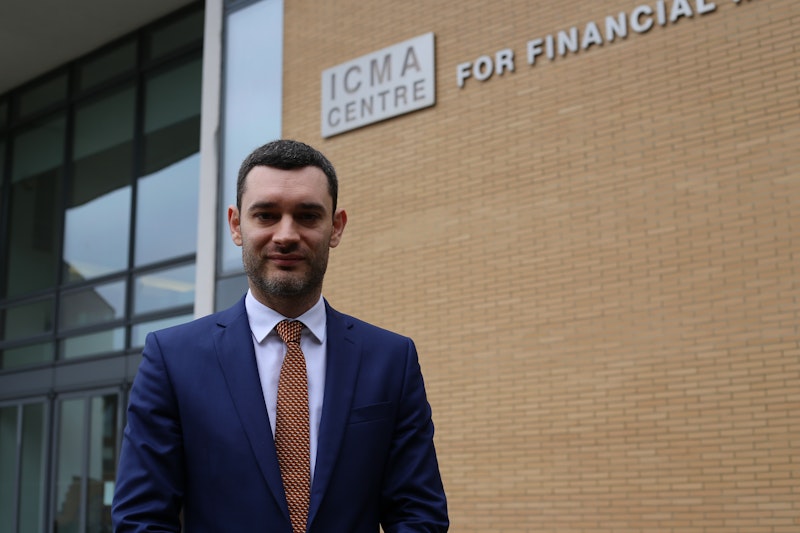The ICMA Centre launches new FinTech initiative
In response to the ever-evolving role of technology in the shaping the future of the financial world and the UK’s part in leading the global FinTech industry, the ICMA Centre is set to extend its offering in FinTech education.

Following the introduction of a number of finance education innovations within our suite of Masters Programmes aiming to enhance our students’ employability skills - including a module in Programming for Finance in 2017 – the ICMA Centre has recently further expanded its module portfolio to include a new module in FinTech and Digital Transformation.
The principle aim of the new module is to provide the students with practical understanding of how the financial services industry has been transformed through the adoption and use of digital innovation and information technologies as well as the abundance of data. The module, offered as a summer elective, will look at the recent developments of FinTech innovation for accounts and payments, digital transformation in banking, new ways of value exchange based on digital tokens (e.g. cryptocurrencies, ICOs, etc.) and shared-leger (e.g. blockchain) technologies, encompassing case studies of artificial intelligence and big data in finance.
The module will be initially available to students on our flagship MSc International Securities, Investment and Banking programme. In line with our scope to offer our Masters students an international experience, the module will be delivered at ALBA Graduate Business School, American College of Greece, our long-time partner institution in Athens, placed among the top 250 business schools globally by QS.
Greece is an emerging European technology hub where local start-ups have raised roughly 250 million euros in the past few years. Participants will gain exposure to how Fintech innovation is being developed and applied in practice by visiting innovation hubs based in large financial institutions in Greece, speak to FinTech start-up entrepreneurs from the Athens FinTech ecosystem, and attend guest talks by digital banking experts. They will also take part in a bespoke “digital banking challenge” whereby they have to work as part of a team to produce a mock mobile application of a digital bank and pitch it to a panel of digital banking experts from the industry and academia who will assess the feasibility and originality of the ideas as well as business potential.
Dr Alexandridis, MSc Programme Area Director at the ICMA Centre commented:
Finance education is evolving and is evolving fast. As one of the pioneers in practice centred Finance Masters we are very excited to be doing more in the FinTech spectrum and offering opportunities to our students to enrich their employability skills and study abroad during the summer months. We think we have put together, along with our partner, a high quality, innovative new module, delivered by world class faculty, that is designed to offer hands-on experience on the on-going digital transformation taking place within the finance industry. We are currently working on more FinTech initiatives so watch this space!
For more information on the new module see our MSc International Securities, Investment and Banking page.
| Published | 28 September 2018 |
|---|

